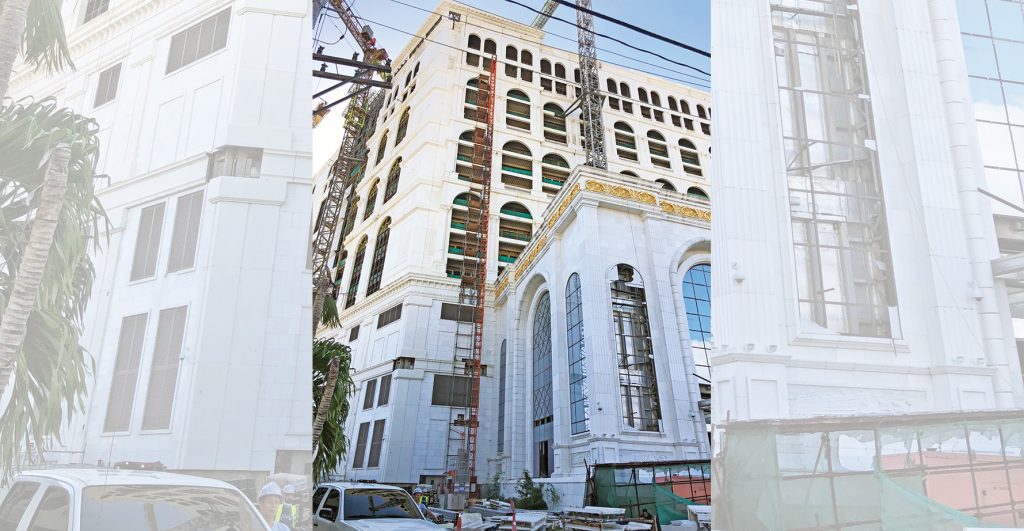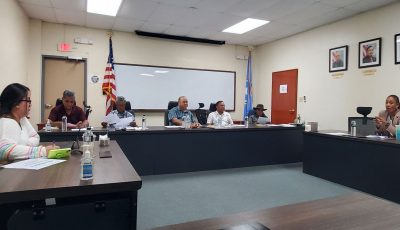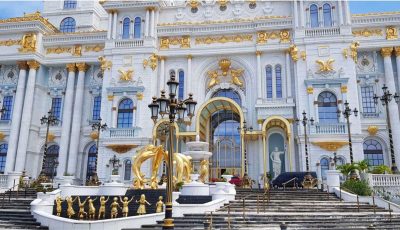IPI wants to pay $15.5M license fee by year 2029
IPI accuses CNMI govt of breaching deal; asks to cut CCC $3M regulatory fee to $1M
Imperial Pacific International (CNMI) LLC has asked the CNMI government that it be allowed to postpone paying the $15.5 million annual casino license fee that it failed to pay last Aug. 12 to the year 2029—on the 15th year of the casino license.
Saying that IPI may be required to remain closed for the rest of this year due to the government-mandated shutdown, IPI is also asking to reduce the Commonwealth Casino Commission’s $3 million regulatory fee to $1 million since the cessation of gaming in the CNMI means less oversight efforts.
In a letter on Aug. 26 to Gov. Ralph DLG Torres, IPI chief executive officer Donald Browne also said that, by allowing poker machines and e-gaming to operate outside of the casino, the CNMI is in violation of the exclusive license that IPI holds.
“If the CNMI governing bodies are open to this plan, IPI is amenable to reasonable annual license fee and reasonable CCC management fee as soon as the plan is approved,” said Browne in the letter that was also addressed to Senate President Victor B. Hocog (R-Rota), House Speaker Blas Jonathan T. Attao (R-Saipan), Attorney General Edward Manibusan, CNMI Lottery Commission chair Mark O. Rabauliman, and CCC acting executive director Andrew Yeom.
Browne said IPI reminds the CNMI of its “unwavering commitment” to making the CNMI a first-class destination for gaming and recreation.
The CEO wrote the letter in response to Torres’ Aug. 19 letter notifying IPI of the government’s intent to suspend or revoke IPI’s exclusive casino license due to its failure to pay the $15.5 million annual license fee. That fee, representing Year 6 of the casino license agreement, was due last Aug. 12 but IPI failed to pay by that deadline. In his letter to IPI, Torres had said that IPI is entitled to an “adequate and reasonable time to cure” the breach.

File photo shows part of the Imperial Pacific Saipan casino that is still under construction. (KRIZEL TUAZON)
In his Aug. 26 response to Torres’ letter, Browne cited the exclusion from gambling prohibition in the casino license agreement, which states that casino gaming and wagering should only occur in the casino. However, Browne said, IPI was never given the exclusivity agreed to in the CLA. He said IPI agreed to the “unusually high” annual license fee of $15 million in return for ensuring the exclusive rights provided for in the CLA.
He said poker machines, slot machines, and e-gaming machines are gambling devices that are “casino games” and the CNMI has not only allowed casino games to operate outside of the exclusive license holder, but has allowed casino gambling to proliferate, causing irreparable harm to IPI through loss of revenue.
“There is no exclusion anywhere in the CLA that allows for other parties to operate casino games,” he said, adding that IPI did not expect the exclusive rights to casino gaming activity to be so easily breached.
He said not only has IPI never received an exclusive license to casino gaming on Saipan as was promised but IPI has also suffered multiple catastrophes. Only seven days after IPI first opened its doors in 2015, the CNMI was hit by the devastating Typhoon Soudelor. In the years after, Browne said, IPI overcame numerous challenges such as a severe shortage of skilled labor, an economic slowdown in China, discontinued flights from Japan, unrest in Hong Kong, unfavorable immigration policy changes, and emerging competing destinations in Asia.
In 2018, he said, Super Typhoon Yutu hit Saipan. He said IPI, along with the entire business sector, had to suspend operations temporarily while the tourism industry and the community began the recovery efforts.
In 2019, Browne said, the CNMI felt a loss of roughly 14% of Chinese arrivals which were exacerbated by unrest in Hong Kong and trade tensions between the United States and China.
Today, he said, the COVID-19 outbreak is impacting the world, the CNMI tourism industry, and the community at a speed which has already outpaced the SARS epidemic of 2003.
“Our company has struggled, our employees have struggled, and our ability to create a steady stream of income has suffered,” he said.
Browne pointed out that, since the award of the casino license, IPI has created thousands of jobs and generated business opportunities for hundreds of local businesses. To date, he said, IPI has invested approximately $1 billion in the CNMI and paid over $300 million in taxes and fees to the government.
He said the $1-billion investment in the initial gaming facility to date is well over the $300 million that it originally promised.
Throughout this time, Browne said, IPI has lost over $500 million cumulatively.
He said IPI paid $14.3 million in community benefit fund. Browne said they would like to go back to the original schedule of paying the CBF after the Phase I land is secured.
He said the intent of Amendment 1 through 8 of the CLA were to allow additional time for construction. “It was never IPI’s intention to pay CBF early,” said Browne, adding that they’d like to rectify through proposed Amendment 9 of the CLA.



























